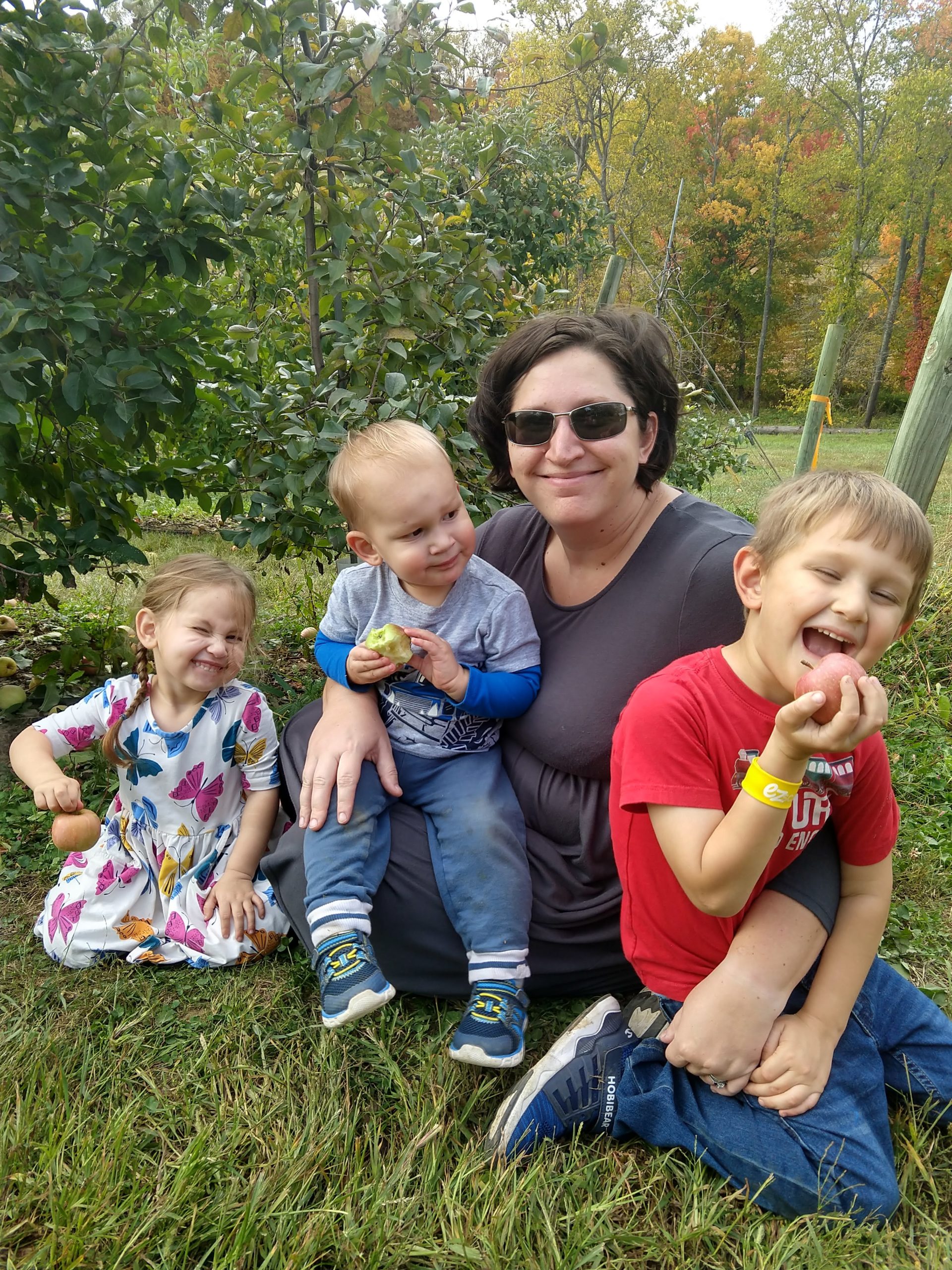“The ruling on the Hope Scholarship by Judge Tabit causes immediate harm to my family. My children and thousands of others were depending on this funding.
We are only weeks from the start of the school year in West Virginia. The justice system has had nearly a year to schedule this hearing. It is very telling about the power of influence that three judges recused themselves.
The incredible short notice pulling of this funding is cruel to the 3,000 students enrolled in the program. We now have to scramble to figure out other options available to our children.
The Hope Scholarship isn’t about public vs private or homeschooling. It’s about giving families access to programs and flexibility. This program can give West Virginian children educational tools for success. This is especially true for special needs children like my daughter Ruth.
Ruth was a baby when we knew something wasn’t right. She had hearing loss from constant ear infections. She did not babble like other babies. As Ruth got older, she became frustrated and threw a lot of tantrums because she couldn’t communicate.
We enrolled Ruth in West Virginia’s early intervention program. Her speech therapist recommended we look into a diagnosis of childhood apraxia of speech. Apraxia is a motor-neurological disorder, where the child has difficulty getting the word sounds from the brain to speech.
The difference between apraxia of speech and a typical childhood speech delay is profound. They require wildly different approaches to improve communication.
When Ruth transitioned out of early intervention, we sought out a speech therapist who specializes in apraxia. There was only one in the state, and she is fortunately located in our city. The approach focuses on training motor memory to create different speech sounds and transitions.
After a couple of months with the new speech therapy approach, the differences in Ruth were profound. She went from regressing to only 10 words or so, after losing in person access to therapy during the pandemic, to over 50 words. Ruth gained a ton of confidence which helped a lot with her progress.
Because Ruth had early intervention, she was eligible for the local public school’s K3 preschool program. We met with their coordinator and our birth-to-three team.
The public school’s representative was rude to both me and the birth-to-three team. She insisted that my daughter be evaluated for all the potential services the public school offered. My trusted team said she did not need behavioral or psychological services anymore, and she was dismissive of this opinion.
She told me parents, “don’t get to choose services,” and it’s, “all or nothing.” We would not get a choice in our own child’s developmental services. We could not choose to only accept speech therapy. We would have to take all the services or none of them based on their evaluation.. I was told later (but am not sure how to confirm this) that our county is the only county in the state with this inflexible policy.
The tone of the meeting was disrespectful toward both me as a parent and our trusted early intervention team. We decided to not enroll her in this program based on this uncomfortable interaction with the school coordinator.
Now that Ruth is nearly 5, she has begun to have a great interest in reading and writing. She was recently tested and accepted into early entry kindergarten at the public charter school. This opened up opportunities for her to use the Hope Scholarship this fall instead of waiting until next fall. She turns 5 in August, just a few weeks after the new July 1 kindergarten deadline.
Along with her speech therapist, we have identified signs that she is also struggling with dyslexia. Dyslexia is common for children with apraxia, along with ADHD.
The speech therapist who specializes in apraxia is cash pay only, she does not take insurance. The public schools do not offer any apraxia speech therapy, it is a rare disorder that only affects about 1 / 1,000 elementary aged children.
We would need an IEP with the school in order to for Ruth to go to speech therapy during the school day. This can take weeks or even months to establish. Without it, we risk resistance from the school and potential truancy charges for continuing her therapy the way it is currently. Even with it, we have heard that families have to fight to get the schools in our area to provide the services promised for special needs kids.
By using the Hope Scholarship, we can not only have flexibility for her therapy, but we can also use these funds to pay for it. She can also use Hope to attend part-day kindergarten and gain access to the dyslexia reading program at the new local charter school.
My oldest child turned 6 in January and he is also eligible for the Hope Scholarship. He struggles with social situations, prefers to play independently, and has not done well with transitions in traditional preschool classrooms. For these reasons, we had planned to use Hope to enroll him in the same part-time kindergarten program at the public charter school. This would allow us to see what works best for him before making any more decisions about his education.
There is nothing stopping traditional public schools from also offering flexible programming. They haven’t offered it yet, probably because the Hope Scholarship program is so new.
Because of today’s ruling, my family’s plan for educating my two oldest children is put into limbo. I am shocked to have this program unavailable with so little notice. We have four children and cannot afford to follow our educational plan for the fall without the Hope Scholarship.
It could not have come at a worse time. We pay for Ruth’s speech therapy out of a pre-tax Health Savings Account. Today, at the same time as the hearing, my third child had heart surgery. This procedure cost will max out our out-of-pocket health insurance cost. The high cost will completely drain the HSA we normally use to pay for Ruth’s speech therapy.
We were depending on the Hope Scholarship to fund Ruth’s speech therapy services and dyslexia reading program in the fall. Now we are forced to change our entire support plan for her with only a month before school is supposed to start.
Every child deserves access to educational services that will best fit them. I went to public school and had a great experience. My husband went to public school and had a terrible experience. Every child is different, public school might be right for one and homeschool might be best for another. Hope gives families flexibility to meet those needs.
I wish that Judge Tabit had considered that the funding for Hope is less than half the total public school funding for each student. My daughter would only have received approximately $4,300 of the $11,000 that our county school gets towards her education.
The public school district gets to keep the rest (from the federal and county levy funding). This money would have gone towards other students who stayed, thereby increasing the per child funding at the school. This would have been a win-win for my daughter and the school.
I look forward to a speedy appeal process so that parents can get an answer soon. Making educational choices for our children is hard enough without being unsure of the funding available to us.”

